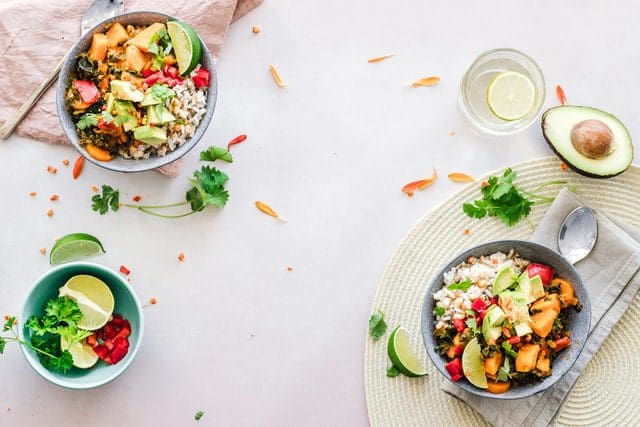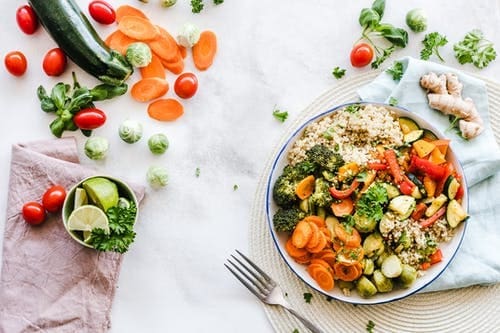With a range of fad diets coming out in the past couple of years, the topic of healthy eating or clean eating has gained traction from people of all age groups. Unlike a product or service designated for a specific market, everyone wants to eat healthily. But many people think it is hard to track eating habits due to time and budget constraints.
Fortunately, unlike what influencers or social media say, changing your diet doesn’t require breaking the bank. If you’ve been looking for advice on transforming your nutritional habits, look no further. Instead, use this article as a guide to begin your healthy eating journey. It includes everything from meal prepping to essential nutrients.
Eat regular meals
The first tip is that you maintain a consistent routine and don’t skip any meals. Ideally, you should aim for at least three daily meals – breakfast, lunch, and dinner. We suggest meal prepping and planning to ensure you don’t skip either (more about that later). Nowadays, plenty of online services like Blue Apron in mealkitsdelivery.com deliver partially prepped meals to your doorstep. It’s a great way to manage your meals and save time buying groceries or deciding what to eat.
Meal Prepping
Since we are on the topic of healthy eating, meal prepping is a must. For busy parents or those with tight work schedules, meal planning always comes in handy. First, come up with meal plans for each day and enlist the groceries you need for them. Then, prepare your meals in advance, like cutting the vegetables or boiling enough pasta or rice that can last a few days. Once you’ve everything prepped, it would be easier to cook your meals rather than ordering takeout. Not to mention the money you would save from planning everything.

Eat healthy snacks
It is advised to stock up on healthy snacks to manage hunger between the three meals. Snacking doesn’t mean going for fast food. If you don’t have enough time to make a snack or are always on the go, keep some Carnivore Snax or dry fruits or protein bars at hand. Be cautious of the ingredients if you have any allergies or dietary restrictions. Other snack ideas include a cup of soup, yogurt cups, a bag of whole-wheat crackers, or fruit.
Don’t skip breakfast
Continuing the first tip, don’t skip breakfast. Contrary to what most people do, always eat breakfast. Whether it’s a quick fruit smoothie, toast with fried eggs, or a serving of fruit, anything that prepares you for the day ahead is good. Many people skip breakfast and go for a high-calorie lunch or dinner, which you should avoid. Breakfast sets the mood and your level of energy for the entire day. Also, after seven to eight hours of sleep, you need something to fill you up, or you would be inviting various health problems like acidity or slow metabolism. Choose anything high in protein like eggs, porridge, fruit, or baked beans, as long as you don’t skip breakfast.

Don’t eliminate carbs from your diet
Many fad diets and weight loss influencers suggest eliminating carbs from your diet; instead of cutting out carbs, consuming them in moderation, specifically “good carbs,” instead of refined carbs like sugar, white bread, white rice, etc. Instead, choose whole carbs like whole-wheat bread, pasta, and grains.
Swap unhealthy foods
One way to transform your diet is to switch unhealthy foods with healthy ones, like replacing white bread with whole-grain bread. If you often experience cravings, don’t immediately reach out for the unhealthy bag of chips or fried chicken from the nearest fast-food place. Instead, ask yourself what you really need. Are you reaching out for highly processed snacks because you’re hungry or just dehydrated? Are you hungry or just tempted to munch on something because you’re stressed? Knowing the cause of your cravings can be the first step in avoiding consuming unhealthy foods. For example, research shows that sugar cravings are linked with excessive dehydration. So, the next time your hunger pangs convince you to grab a chocolate bar, drink a glass of water instead. Who knows, you might be thirsty!
Choose healthy fats
Just like you shouldn’t avoid carbs completely, the same goes for fats! Replace unhealthy food high in saturated and trans fats with food high in unsaturated fats like vegetable oil, nuts, and fish. Fats are rich in energy and nutrition for the body and help absorb essential vitamins like Vitamin A, D, and E. So, instead of deep-fried foods that are high in unhealthy fats, go for grilled or air-fried foods.

Stock up on fruits and vegetables
Your diet is unhealthy if you’re not incorporating enough fruits and vegetables. When meal prepping, include at least some vegetables or fruit in each meal. Go for the rainbow and pick out all the green, orange, yellow and red vegetables. There are so many nutritional benefits of a purely vegetarian meal. Try out alternatives to chicken recipes like sticky sesame cauliflower or dish out white rice for cauliflower rice. Fruits and vegetables have high fiber content which you need a lot of if you want a healthy diet.
Drink plenty of water
Knowing that your body is 70% water, you cannot possibly avoid this one. Every morning, drink a glass of water. Drink a glass of water 30 minutes before and after every meal. If you sweat a lot or physically train every day, then you need more than just eight glasses of water every day. It is essential to replenish your body with the water lost every day.
Consume less salt
While some salt is required for your body’s digestive system to work, you don’t need a lot. And what happens often is that you consume more salt than required. Unfortunately, many food companies aren’t transparent regarding the quantity of sodium in their products, so you should be wary of what you put in your body. Instead, go for fresh food that is healthy and unprocessed.
Lower your Alcohol Consumption
Alcohol and takeout or delivery meals should be occasional pleasures. Alcohol should be consumed in moderation rather than daily, if consumed at all. If you choose to consume alcohol, drink in moderation and not a drop more. Not only is the overconsumption of alcohol harmful to your liver and brain, but it causes more social damage than one might suspect.
Portion matters
One of the most crucial tips for a healthy and balanced diet is knowing what you consume and what amount. Portion size is as vital as the quality of food that you put on your plate. Even if it is healthy, eating more than required is unhealthy. Consuming more food than you need can cause weight gain or cardiovascular problems. Consider this a rule of thumb: anything that fits your palm equals one serving. Similarly, divide it into portions for bigger meals like dinner or lunch: one quarter for grains, one for meat or a meat alternative, and a half for vegetables.
Conclusion
Eating healthy doesn’t have to be overwhelming. Keep an eye out for what you enjoy and what’s causing trouble. If a particular vegetable causes you frequent stomach problems, ditch it! Emotional or stress eating may make you feel better for the time being but can cause problems in the long run. Try to be mindful when preparing your meals. We hope this article helps you eat better and take good care of your health.



Comments are closed.